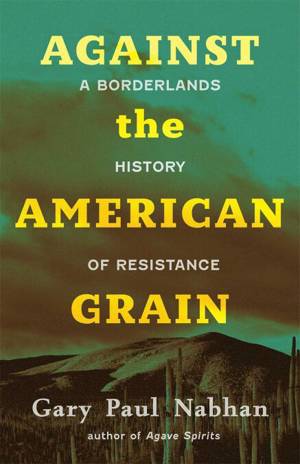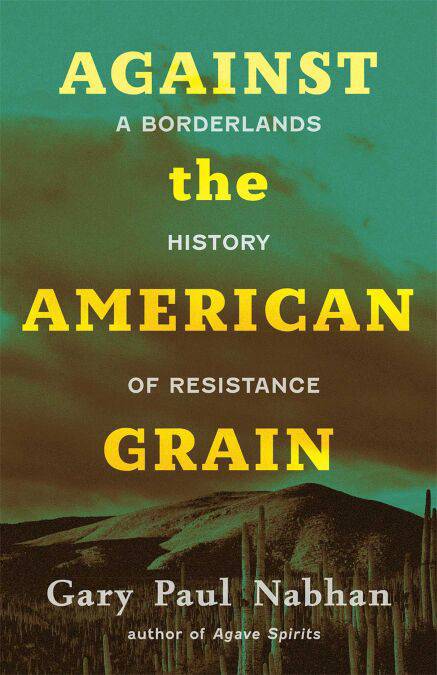
- Afhalen na 1 uur in een winkel met voorraad
- Gratis thuislevering in België vanaf € 30
- Ruim aanbod met 7 miljoen producten
- Afhalen na 1 uur in een winkel met voorraad
- Gratis thuislevering in België vanaf € 30
- Ruim aanbod met 7 miljoen producten
Zoeken
Against the American Grain E-BOOK
A Borderlands History of Resistance
Gary Paul Nabhan
E-book | Engels
€ 11,17
+ 11 punten
Omschrijving
A century ago, William Carlos Williams’s In the American Grain profiled Anglo, French, and Spanish conquistadors, tyrants, preachers, and thought leaders who first shaped American culture. Since then, waves of resistance and disruptive innovation have flooded into the rest of America from the arid, southwestern margins of the US-Mexico borderlands.
Now, in Against the American Grain, Gary Paul Nabhan—cultural ecologist, environmental historian, and lyric poet of the American Southwest—illuminates the outlines of a history too long in the shadows. Whether Indigenous, LatinX, priests, nuns, Quakers, or cross-cultural chameleons, it is the resisters, performers, grassroots organizers, nomads, and spiritual leaders from the desert margins who are constantly reshaping America. They have, against all odds, recolored and recovered the future of North America through outrageous acts of resistance.
After reading the stories of Estevanico el Moro, Maria de Ágreda, Teresita de Cábora, Coyote Iguana, Woody Guthrie, Tim X. Hernandez, Cesar Chavez, Dolores Huerta, Reyes Lopez Tijerana, Arturo Sandoval, Lalo Guererro, John Fife, Danny and Luis Valdez, John Steinbeck and Ed Ricketts, and many more, we can never think about America the same way again. In Nabhan’s magisterial, radical recounting, cross-cultural collaborations have changed the grain of American life to one that is many-colored, once again flourishing with fragrance, faith, and fecund ideas.
Now, in Against the American Grain, Gary Paul Nabhan—cultural ecologist, environmental historian, and lyric poet of the American Southwest—illuminates the outlines of a history too long in the shadows. Whether Indigenous, LatinX, priests, nuns, Quakers, or cross-cultural chameleons, it is the resisters, performers, grassroots organizers, nomads, and spiritual leaders from the desert margins who are constantly reshaping America. They have, against all odds, recolored and recovered the future of North America through outrageous acts of resistance.
After reading the stories of Estevanico el Moro, Maria de Ágreda, Teresita de Cábora, Coyote Iguana, Woody Guthrie, Tim X. Hernandez, Cesar Chavez, Dolores Huerta, Reyes Lopez Tijerana, Arturo Sandoval, Lalo Guererro, John Fife, Danny and Luis Valdez, John Steinbeck and Ed Ricketts, and many more, we can never think about America the same way again. In Nabhan’s magisterial, radical recounting, cross-cultural collaborations have changed the grain of American life to one that is many-colored, once again flourishing with fragrance, faith, and fecund ideas.
Specificaties
Betrokkenen
- Auteur(s):
- Uitgeverij:
Inhoud
- Aantal bladzijden:
- 232
- Taal:
- Engels
Eigenschappen
- Productcode (EAN):
- 9780826366986
- Verschijningsdatum:
- 30/09/2024
- Uitvoering:
- E-book
- Beveiligd met:
- Adobe DRM
- Formaat:
- ePub

Alleen bij Standaard Boekhandel
+ 11 punten op je klantenkaart van Standaard Boekhandel
Beoordelingen
We publiceren alleen reviews die voldoen aan de voorwaarden voor reviews. Bekijk onze voorwaarden voor reviews.







